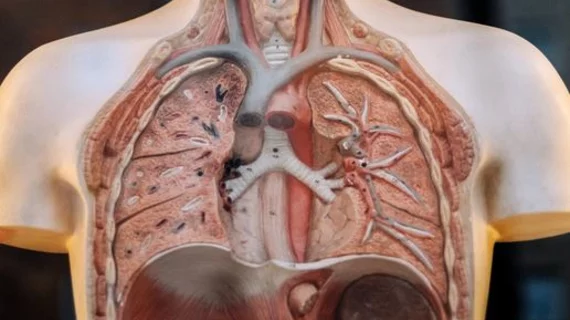FDA clears AI for breaking down lung CT images into subsegments
The U.S. Food & Drug administration has cleared AI-powered thoracic CT image analysis software, capable of automatically segmenting images based on the internal anatomy of the lung.
LungQ 3.0 is the latest iteration of an AI application first cleared in 2018, which has now been enhanced via deep-learning to allow for more clinical precision in the analysis of lung lobes, segments, subsegments, airways and fissures, according to a statement from developer Thirona.
The software is designed to support physicians in the diagnosis and documentation of pulmonary tissue images from CT scans, guiding pulmonologists as they work to access peripheral locations within the lungs, offering a noninvasive way to plan for treatment and surgery should a patient require intervention.
“A clearer understanding of lung anatomy helps enable broader adoption of minimally invasive treatments for lung diseases such as COPD and lung cancer, helping save more healthy lung tissue and lung function capacity,” Evan van Rikxoort, founder and CEO of Thirona said in the statement. “Acting as a map for lung anatomy, LungQ helps guide bronchoscopic navigation, leveraging AI to significantly enhance the precision, accuracy, and efficiency of bronchoscopic and surgical lung interventions.”
The company noted its AI is also approved for clinical use in Europe, the U.K. and Australia, where it is being used in more than 600 clinical settings.

